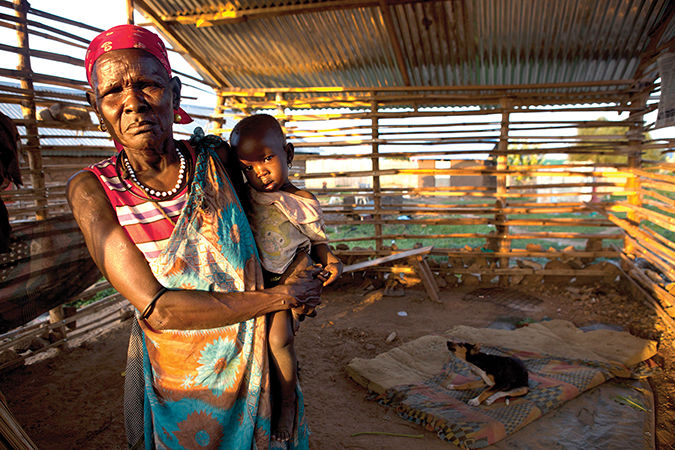The world’s newest nation is in big trouble. After more than 20 years of civil war between the southern and northern areas of Sudan, the southern part of that country became the independent nation of the Republic of South Sudan on July 9, 2011.
The nation has suffer much turmoil ever since. The many years of war brought not only much death, but also drained South Sudan of valuable resources.
According to South Sudan’s National Bureau of Statistics, 51 percent of the population lives below the poverty line, 73 percent are illiterate and 45 percent do not have access to improved sources of drinking water.
As if conditions weren’t bad enough, last year — 10 days before Christmas — civil war broke out in South Sudan amid a struggle for power between President Salva Kiir and former vice president Riek Machar, who Kiir had dismissed months earlier.
According to the International Crisis Group, the civil war has claimed more than 10,000 lives, and more than a million have been displaced. And ICG warns that the current humanitarian crisis threatens many more.
According to “The Sudd Institute: Research for a peaceful, just and prosperous South Sudan,” four million people are facing a serious risk of famine and starvation and approximately 100,000 people are already experiencing desperate circumstances in U.N. camps.
The United Nations Children’s Fund warns that without greatly increased emergency international assistance, more than 50,000 children under the age of five will soon die of starvation.
But long-term development aid is also indispensible.
John Ashworth, who serves as an advisor to the Catholic bishops of South Sudan, wrote in an email to me that many international donors are reducing their development aid to South Sudan due to a lack of progress in the peace talks among the warring parties.
Ashworth said that seven of the 10 states in South Sudan are not directly affected by the conflict, and it is both unfair and counter-productive to deny development aid to those people.
The heroic Bishop Emeritus Paride Taban often says that development is peace, and there is thus a fear that reducing development aid will create the conditions for insecurity to spread.
A U.S. State Department official, who wanted to remain anonymous, told me how important it is for us to contact our congressional delegation, urging them to increase funding for both emergency and development assistance. Such assistance would support critical programs aimed at justice and reconciliation, education, infrastructure and food security.
Ashworth said, “I would highly recommend making a donation to Catholic Relief Services (CRS) which is very active in South Sudan. I work closely with them.”
During this Advent season, as we prepare to celebrate the birth of our Savior, Christ the Lord, let us also remember the birth and infancy of the world’s youngest nation.
As the wise men brought gifts of gold, frankincense and myrrh to Jesus, let us bring Christmas gifts of prayer, money and advocacy to suffering South Sudan.
Let’s not forget that by giving gifts to the South Sudanese, we are ultimately giving Christmas gifts to Jesus, who said, “Amen, I say to you, whatever you did for one of these least brothers of mine, you did for me.”
Tony Magliano is an internationally syndicated social justice and peace columnist. He is available to speak at diocesan or parish gatherings about Catholic social teaching. His keynote address, "Advancing the Kingdom of God in the 21st Century," has been well received by diocesan gatherings from Salt Lake City to Baltimore. Tony can be reached at [email protected].

